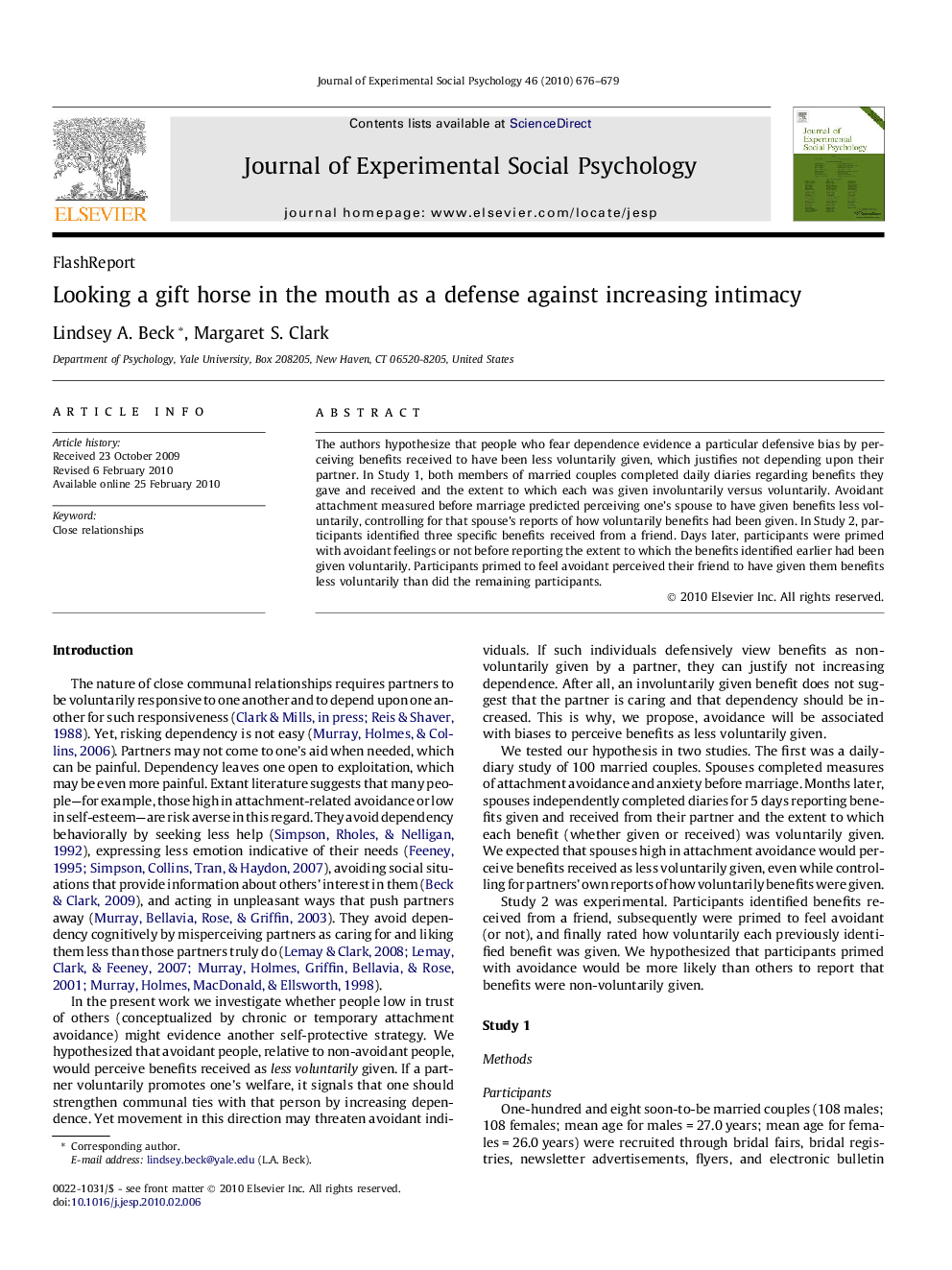| Article ID | Journal | Published Year | Pages | File Type |
|---|---|---|---|---|
| 948717 | Journal of Experimental Social Psychology | 2010 | 4 Pages |
The authors hypothesize that people who fear dependence evidence a particular defensive bias by perceiving benefits received to have been less voluntarily given, which justifies not depending upon their partner. In Study 1, both members of married couples completed daily diaries regarding benefits they gave and received and the extent to which each was given involuntarily versus voluntarily. Avoidant attachment measured before marriage predicted perceiving one’s spouse to have given benefits less voluntarily, controlling for that spouse’s reports of how voluntarily benefits had been given. In Study 2, participants identified three specific benefits received from a friend. Days later, participants were primed with avoidant feelings or not before reporting the extent to which the benefits identified earlier had been given voluntarily. Participants primed to feel avoidant perceived their friend to have given them benefits less voluntarily than did the remaining participants.
